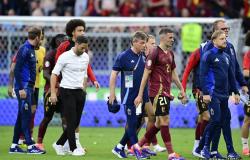From Arinella beach, in Bastia (Upper Corsica) this Sunday, June 16, two trimarans from the CorSeaCare mission set off for a journey of around a month. On board, eight volunteers from the Mare Vivu association, which fights against plastic pollution in the Mediterranean. On their way to the city of Ajaccio (Southern Corsica), they will make around twenty stops in order to collect waste.
“Once sorted, the data is transmitted to partner laboratories,” explains Léa Bourglan, captain of the mission. The objective is not to clean the beach but to go back to the source of the waste. » The results obtained will then be integrated into the association’s “advocacy” aimed at political leaders. The idea being, obviously, to reduce the production of plastics.
“It tends to triple by 2060,” explains Léa Bouglan. And field observations confirm this projection. “In nine years of CorSeaCare mission, we have seen the number of plastics increase,” she emphasizes. There is also another phenomenon: pollution mutates. It turns into micro-plastics and merges with sand, but it does not disappear. » The Mediterranean is in fact the most polluted sea in the world.
“According to the study The Mediterranean Plastic Soup, the area between Corsica and Italy is four times more concentrated in micro-plastics than the oceanic gyre of the 7th continent (the gigantic accumulation of waste which was formed by sea currents), alerts Léa Bourglan. It is urgent to take action. »






